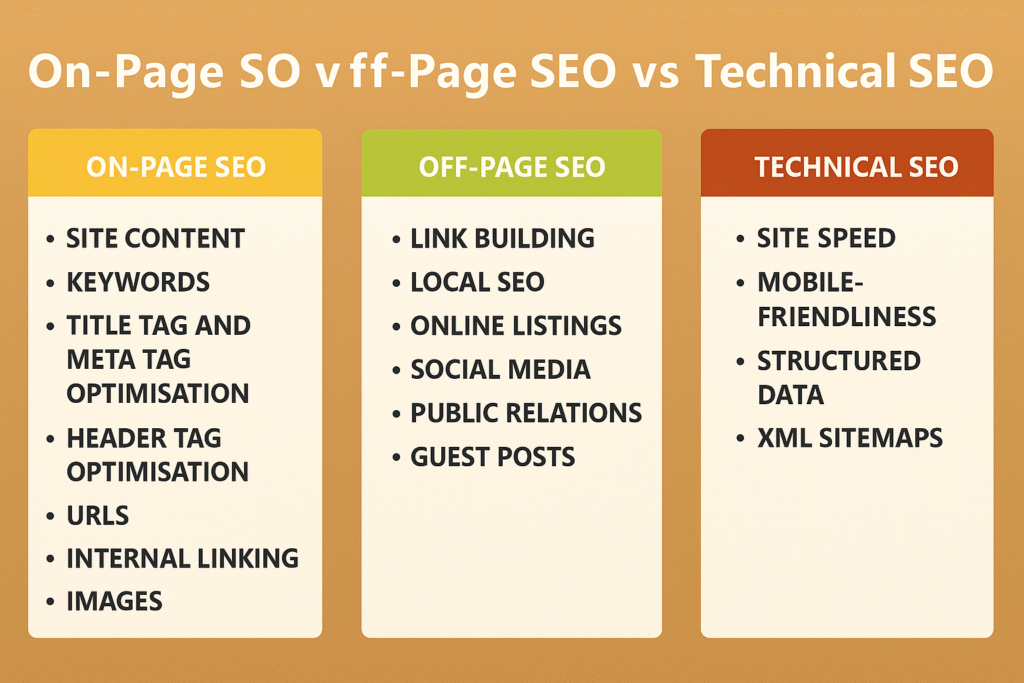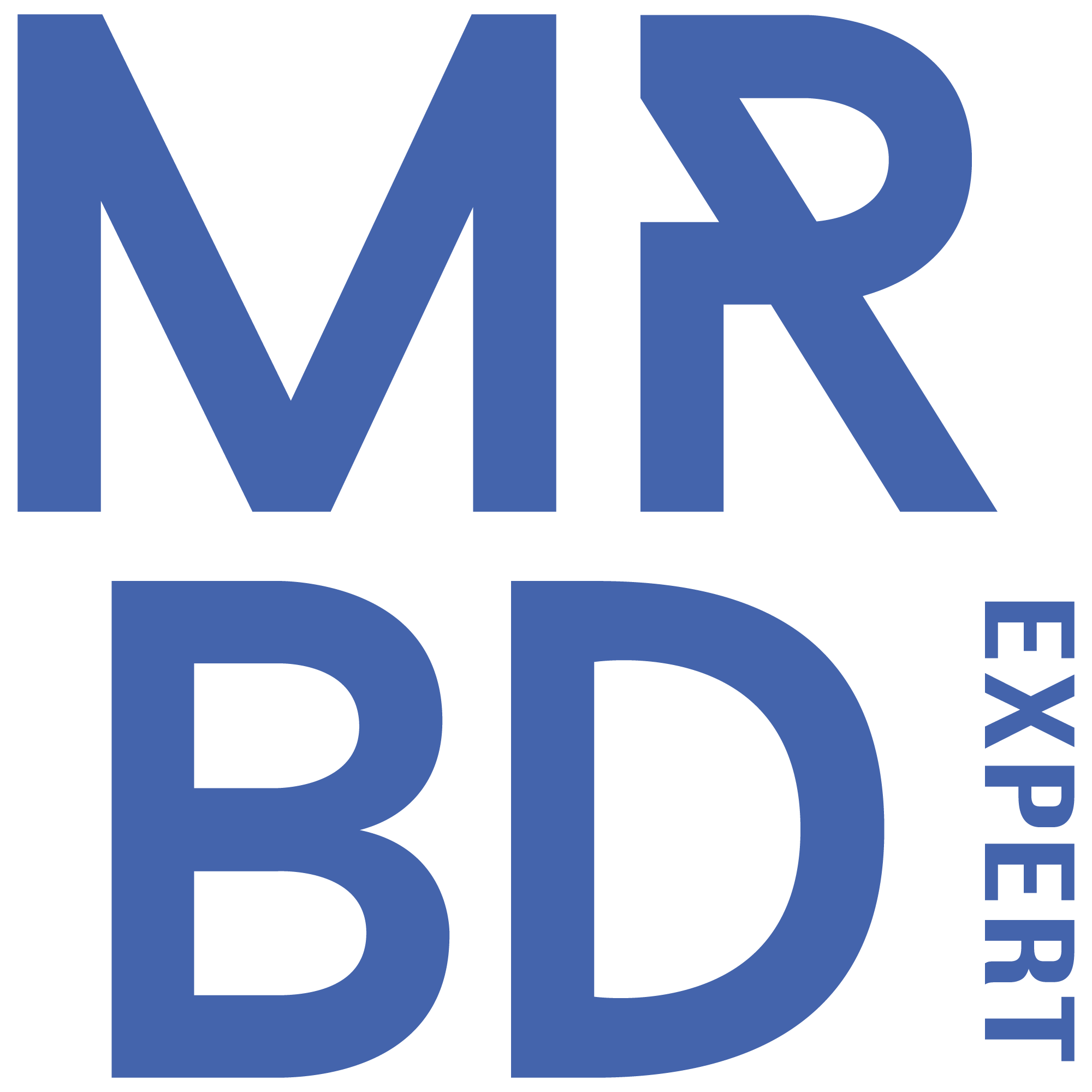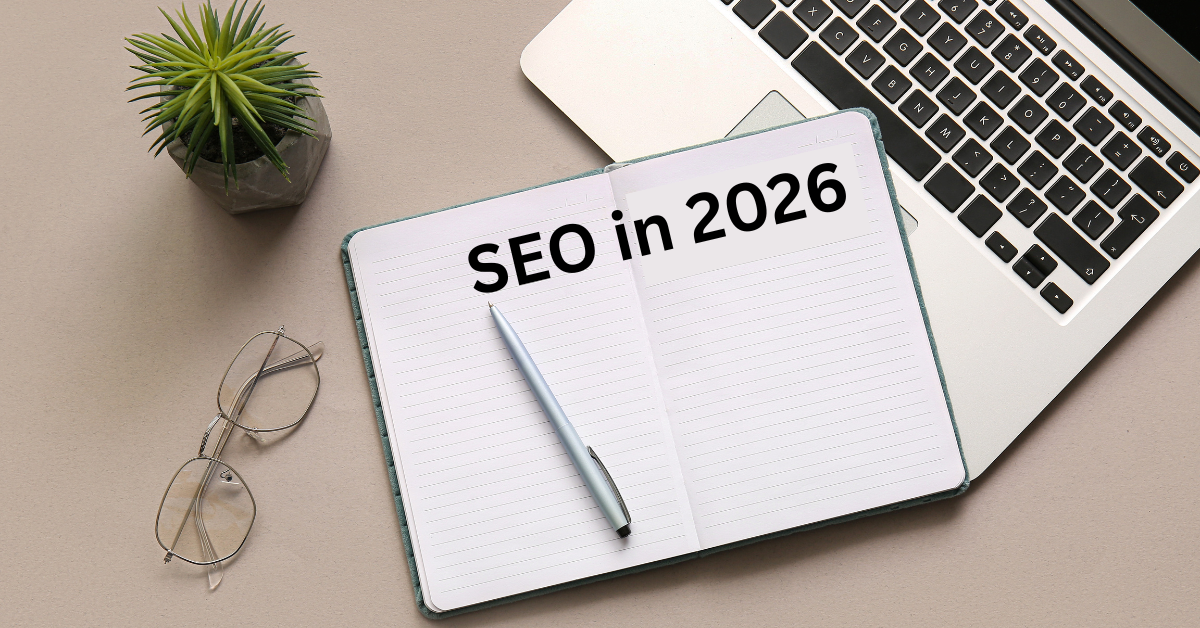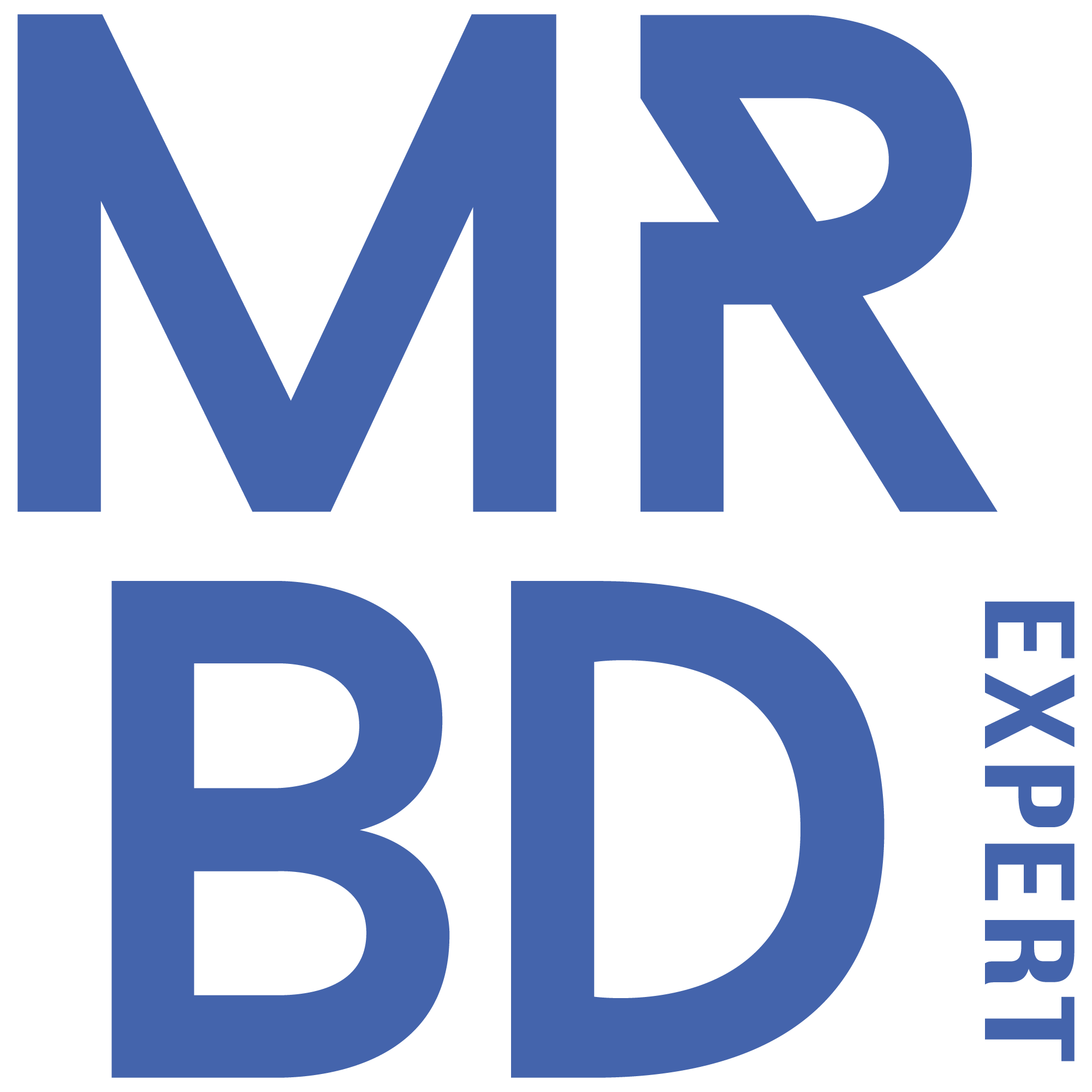If you’re serious about improving your website’s search engine rankings, you need more than just a quick set of SEO tips; you need a robust, detailed, and actionable on-page SEO checklist that leaves nothing to chance. Every element, from the way you choose and place keywords to how you structure your site’s URLs, plays a vital role in determining how effectively search engines can crawl, understand, and rank your content. With professional On-Page SEO Services, you can ensure that every page of your website is fully optimized for maximum visibility and higher rankings.
Think of on-page SEO as the foundation of your online visibility. Without a solid base, even strong off-page strategies like link building won’t reach their full potential. For UK businesses, that foundation should also include local relevance, British spelling, and a focus on user experience. Using professional On-page SEO Services ensures your site appeals to both search engines and the audience you want to attract.
What is On-Page SEO?
On-page SEO, also known as on-site SEO, is the process of optimizing individual web pages to improve their visibility on search engine results pages (SERPs). The main goal is to make each page relevant, understandable, and valuable to both search engine algorithms and human visitors.
This optimization covers several essential elements, such as high-quality content, page structure, meta titles, meta descriptions, heading tags (H1, H2, H3), internal linking, and URL structure. These factors work together to increase a page’s ranking potential. Unlike off-page SEO, which focuses on external signals like backlinks, on-page SEO is entirely within your control. By refining these on-page elements, businesses can create a strong foundation for their overall SEO strategy.
Why is On-Page SEO Important?
For businesses, especially in competitive industries, on-page SEO increases the chances of being discovered online by potential customers searching for specific products or services. A well-executed on-page strategy helps you rank higher than competitors targeting the same keywords. For example, an online furniture store with a “Dining Tables” page created five years ago is less likely to outrank a competitor that regularly updates its dining tables page, optimizes for search intent, and creates category-specific pages.
On-page SEO is an ongoing process unlike paid search advertising, which ends when the budget runs out. Regularly reviewing and improving elements like keyword placement, content freshness, mobile-friendliness, and page speed ensures your site stays relevant and competitive in search rankings.
By focusing on on-page factors, businesses not only improve their organic search visibility but also enhance the user experience, driving more qualified traffic and conversions over time.

Why Regular On-Page SEO Audits Matter
On-page SEO isn’t something you do once and forget about. Search engines change their algorithms, competitors update their sites, and user expectations shift over time. A regular audit helps you spot what’s outdated, what’s slowing your site down, and where you can improve.
From fine-tuning a meta description to speeding up your page load time, regular reviews keep your site in line with best practices and make sure you stay ahead of the competition.
Why Use On-Page SEO Services?
When it comes to ranking higher on Google and attracting the right visitors, on-page SEO is a crucial part of any digital marketing strategy. A professional marketing agency that offers on-page SEO services focuses on proven techniques to boost positions in the SERPs (search engine results pages) and attract visitors who are genuinely interested in a business’s products or services. The aim is simply to turn clicks into paying customers.
Increase Organic Traffic and Conversions
Ranking well on search engines is only part of the process. What truly matters is attracting traffic that matches the target audience’s search intent. By identifying and targeting the right keywords, an experienced marketing agency ensures that the visitors landing on a website are more likely to take action whether that means making a purchase, submitting a form, or calling the business. This results in higher conversion rates and measurable business growth.
Save Time and Get More Done
Business owners already have enough on their plates. Even with a basic understanding of SEO, consistently applying strategies, monitoring performance, and making necessary adjustments requires time and focus. By partnering with a marketing agency for on-page SEO services, businesses gain access to the right resources, expertise, and consistency to improve organic visibility. A structured SEO plan helps build site authority, improve rankings, and generate steady streams of relevant traffic all while freeing up valuable time for other business priorities.
Benefit From Industry Experts
SEO is a broad, constantly evolving field. Working with an on-page SEO company means gaining the knowledge and skills of specialists in multiple areas — from technical optimization and keyword research to content strategy and user experience improvements. By combining expertise across different SEO disciplines, a marketing agency can develop effective, data-driven strategies that lead to long-term search engine success.

On-Page SEO Checklist
Title Tag Optimisation
Your title tag is the first thing users and search engines notice. Keep it under 60 characters for optimal display in search results. Include your main keyword naturally and make it compelling enough to earn clicks. Avoid keyword stuffing and focus on clarity, relevance, and user intent. Consider adding power words or numbers to make it more engaging.
Meta Description Optimisation
Think of your meta description as a mini sales pitch in search results. Keep it between 150–160 characters, include relevant keywords naturally, and make it enticing to encourage clicks. Highlight benefits, solutions, or unique points of your content. A well-written meta description can improve your click-through rate even if your ranking stays the same.
URL Structure
Short, clear, and descriptive URLs are easier for users to read and remember. Use hyphens instead of underscores, avoid unnecessary numbers, symbols, or stop words, and include your main keyword where it fits naturally. Clean URLs also help search engines understand the content hierarchy of your site.
Header Tags (H1, H2, H3…)
A structured page layout improves readability and SEO. Use one H1 tag for the main topic, then H2 and H3 tags for subtopics and sections. Proper header hierarchy helps both users and search engines scan and understand your content. Use keywords naturally in headers without forcing them.
Keyword Placement & Usage
Place your primary keyword early in the content, ideally within the first 100 words. Sprinkle secondary and related keywords throughout naturally to enhance relevance without overstuffing. Focus on semantic keywords and LSI terms that support the main topic. Keyword placement should feel organic.
Content Quality
High-quality, original content is essential. Answer readers’ questions fully, provide actionable tips, and ensure your content is well-researched, easy to follow, and formatted with short paragraphs, bullet points, and visuals. Avoid duplicate content and thin content pages.
Image Optimisation
Images should have descriptive file names and alt text with relevant keywords. Compress images to reduce load time while maintaining quality. Use modern formats like WebP and include captions where helpful. Optimized images improve both SEO and user experience.
Internal Linking
Link to other relevant pages within your website. This helps search engines understand your site structure, distributes link authority, and keeps visitors engaged longer. Use descriptive anchor text that explains what the linked page offers.
Mobile-Friendliness
With mobile traffic dominating the web, your website must be responsive and perform well on all devices. Test layouts, buttons, fonts, and navigation to ensure smooth usability. Mobile-friendly design is a ranking factor and directly impacts user experience.
Page Speed
Website speed affects both user experience and SEO. Use tools like Google PageSpeed Insights to identify performance issues. Optimize caching, compress images, reduce unused scripts, and leverage Content Delivery Networks (CDNs) to improve loading times.
Schema Markup
Implement structured data to help search engines understand your content and improve your chances of appearing in rich results, such as snippets, product listings, or FAQs. Schema enhances visibility and can improve click-through rates.
Social Sharing Options
While social sharing doesn’t directly impact rankings, making it easy for users to share content on platforms like Facebook, Twitter, LinkedIn, or Pinterest can increase traffic, referral links, and brand awareness.
Content Readability
Ensure your content is easy to read with clear headings, short sentences, and simple language. Use tools like Hemingway or Yoast readability checks to maintain a reading level suitable for your audience.
Outbound Links
Link to authoritative, relevant websites where appropriate. Outbound links provide context, support your content claims, and signal credibility to search engines.
Regular Content Updates
Keep your pages updated with fresh content, latest statistics, and trends. Search engines favor websites that maintain current and relevant information.
Multimedia Integration
Incorporate videos, infographics, charts, and other multimedia to make content more engaging. Multimedia can increase time-on-page and reduce bounce rates, both of which positively impact SEO.
Advanced On-Page SEO Strategies
Basic on-page SEO is just the starting point to really stand out in competitive search results, you need advanced strategies that go beyond the essentials. These tactics not only help improve rankings but also make your content more engaging and visible across different search features.
Featured Snippets Optimisation
Featured snippets can put your content right at the top of Google, even above the first organic result. To increase your chances, give clear, concise answers to common questions. Format them as bullet lists, numbered steps, short paragraphs, or comparison tables. The goal is to make it easy for Google to pull your answer and display it directly in the search results.
FAQ Schema Integration
Adding FAQs to your content can do more than just help your readers; it can also give you extra space in the search results. Using FAQ schema markup signals to search engines that your content contains structured Q&A information, increasing the chances of your listing expanding with visible questions and answers.
Video Content Optimisation
Videos can boost engagement, but search engines need help understanding them. Give every video an SEO-friendly file name, write keyword-rich descriptions, and include a transcript so search engines can index the spoken content. This improves both discoverability and accessibility.
Voice Search Readiness
With voice search growing in popularity, optimising for natural, conversational queries is key. Use question-based keywords (“How do I…?”, “What’s the best way to…?”) and focus on concise, direct answers. Voice searches tend to be longer and more specific, so matching that tone can give you an edge.
Structured Data for Rich Snippets
Structured data markup (such as JSON-LD) helps search engines better interpret your page’s content. This can lead to eye-catching rich snippets — like star ratings, product details, or event times appearing in your search listing. The more detailed and accurate your data, the more likely you’ll stand out.
Semantic Keyword Use
Search engines don’t just look for your exact keyword anymore they also analyze related terms to understand the context. Sprinkle relevant, semantically related keywords throughout your content to make it more comprehensive and authoritative without forcing repetition.
On-Page vs Off-Page SEO: What’s the Difference?
When people talk about SEO, they usually mean two main types on-page SEO and off-page SEO. Both help a website show up higher in search results, but they work in different ways.
On-page SEO is everything you can do on your own website to make it better for search engines and visitors. This means using the right keywords in your text, writing clear titles, adding good descriptions, making pages load fast, and making sure the site works well on phones. It’s about making the site easy to read, easy to use, and easy for Google to understand.
Off-page SEO happens outside your website. The goal is to get other people and websites to trust your site and recommend it. The most important part of this is getting backlinks from other websites that lead to yours. It’s like other sites giving your site a thumbs-up. Off-page SEO can also include posting on social media, being listed on Google Business Profile, or having your business mentioned in online directories like Yelp.
Here’s the simple way to remember it:
- On-page SEO = improve your own website.
- Off-page SEO = get others to talk about and link to your website.
To get the best results, both on-page and off-page SEO should be done together. One makes your site strong, and the other makes it trusted.

SEO Content Writing Guidelines
Good content helps people understand your website and what your business offers. The first step is to think about what your visitors are looking for. Make a list of the words or phrases people might use when searching for your services. Then write content that answers their questions clearly and simply. Using headings like H1, H2, and H3 can help organize your content so it is easier to read. Use your main words naturally in titles, headings, and the text itself. Don’t repeat them too much, or it will make your writing hard to read. You can also use related words to explain your topic better. Adding pictures with descriptions helps visitors understand your content and makes the page more interesting. Linking to other pages on your website can help visitors find more useful information. You can also include links to trustworthy sites for extra help or references. Writing short paragraphs, using lists, and breaking up text with headings makes your content easier to follow.
Creating clear and helpful content keeps visitors on your site longer and makes them more likely to return. Pages that are easy to read and understand also do better in search results. By keeping your writing simple, organized, and useful, you can help more people find your website, understand your services, and trust your business.
Tools for On-Page SEO Analysis
Having the right tools can make all the difference in keeping your website optimised. These platforms help you spot issues, track improvements, and make data-driven decisions to boost rankings.
Google Search Console
A must-have for every website owner, Google Search Console shows how your site performs in search results. You can track keyword rankings, find indexing issues, and monitor click-through rates. Best of all it’s completely free and packed with valuable insights.
Google PageSpeed Insights
Site speed affects both user experience and rankings. Google PageSpeed Insights scans your pages, identifies what’s slowing them down, and provides step-by-step recommendations to improve load times. Faster sites keep visitors engaged and reduce bounce rates.
Moz On-Page Grader
Moz’s On-Page Grader is like a health check-up for individual pages. It analyses your title tags, meta descriptions, keyword usage, and other on-page factors, then gives you practical tips to improve.
SEMrush On-Page SEO Checker
This tool compares your page with top-ranking competitors and suggests ways to optimize for better visibility. From keyword placement to content recommendations, SEMrush helps you target user intent more effectively.
Ahrefs Site Audit Tool
Ahrefs goes deep into your site’s structure and technical health. It flags broken links, duplicate content, slow-loading pages, and other issues that can hurt rankings. Regular audits help you stay ahead of problems before they impact traffic.
Screaming Frog SEO Spider
Screaming Frog is a powerful crawler that scans your entire site for SEO gaps. It’s great for spotting missing meta tags, redirect errors, and duplicate pages, all the small details that can make a big difference in search performance.
Local SEO On-Page Techniques
Making your website easy to find for people nearby is very important. Local SEO helps your business show up when people search for services in your town, city, or neighborhood. One simple way to improve this is by including your city or neighborhood naturally in page titles, headings, and content. This tells search engines where your business is and helps match your site with people searching in that area. It is also important to keep your business name, address, and phone number the same everywhere online. If this information is different on your website and other sites, search engines may get confused. Consistent details help people trust your business and increase the chance that your site will appear in local search results. If your business serves multiple areas, creating separate pages for each location can be very helpful. Each page should describe the services available in that area and include customer reviews or photos. Reviews make your business look trustworthy and encourage new visitors to contact you.
Other important points include making sure your pages load quickly, your images are clear and optimized, and your website works well on phones and tablets. Many people search for local services on mobile devices, so having a fast and easy-to-use website keeps visitors happy. Following these steps helps your website attract more local visitors, makes it easier for them to find your business, and increases the chances they will reach out or buy your services.
How to Track On-Page SEO Performance
Tracking how well your web pages are doing helps you know what’s working and what needs fixing. By checking your pages regularly, you can make them better for visitors and help your site show up higher in search results. Doing this step by step makes sure your efforts bring real results.
Monitor Keyword Rankings
The first step is to watch the words or phrases people use to find your site. Tools like Google Search Console or SEMrush can show you which pages are ranking higher or lower. If a page drops, you might need to update its title, headings, or content. This keeps your pages competitive in search results.
Analyze Organic Traffic
Next, look at how many people visit your pages from search engines. Google Analytics can show the number of visitors, how long they stay, and which pages they like most. If a page has fewer visitors than expected, it may need better content or clearer information. Checking traffic regularly helps you make smart improvements.
Evaluate User Engagement Metrics
It’s also important to see how visitors behave on your site. Bounce rate, average session time, and the number of pages visited tell you if people are interested. If visitors leave quickly, the page may be confusing or hard to read. Making pages faster, easier to read, and more organized keeps people engaged longer.
Conduct Regular Page Audits
Finally, go through your pages from top to bottom to check titles, headings, links, images, and mobile view. Fixing small problems often keeps your site strong and search-friendly. Regular audits help you spot issues early, make better updates, and improve your site’s visibility.
How On-Page SEO is Changing
The way websites show up in search results is always changing. New tools and methods help website owners understand what visitors want and how to make pages better. These tools can show which words or phrases people are searching for, which headings work best, and which parts of a page visitors like the most. This helps make websites easier to find and more useful for visitors. These tools can also show if a page is missing information or if something could be improved, like the titles, descriptions, or links on a page. They track how people use a page and which parts keep them interested. Pages that are clear, easy to read, and useful keep visitors longer, which also helps them appear higher in search results.
Another helpful thing is that websites can adjust content based on what visitors want. For example, if people like certain topics or sections, the page can show more of that information. This makes the page more interesting and encourages visitors to stay longer.
Using these methods carefully helps website owners improve their pages faster and more efficiently. By keeping pages well-organized, updated, and easy to understand, websites can attract more visitors and provide a better experience. This makes it easier for people to find the information they need and trust the website.
Conclusion
On-page SEO helps make your website easy to find and useful for visitors. Checking pages regularly, using the right words, organizing content clearly, and making your site fast and mobile-friendly all improve results. Local SEO helps nearby customers find your business, while clear content builds trust.
Working with a marketing agency can make these steps easier and faster. They know how to track performance, fix issues, and optimize pages so your website attracts more visitors and keeps them engaged. Even small improvements can make a big difference in search rankings and user experience.
FAQs About On-Page SEO
What is on-page SEO?
On-page SEO is the work done on your own website to help search engines understand it and make it easier for visitors to use. This includes adding keywords, writing clear titles, improving page speed, and making sure the site works well on phones.
Why is on-page SEO important?
It helps your website rank higher in search results, which brings in more visitors. It also improves the user experience, making people more likely to stay, read, and take action.
Can I do on-page SEO myself?
Yes, but it can take time to learn all the steps and keep up with changes. Many businesses use a marketing agency to save time and get better results.
How often should I update my on-page SEO?
It’s a good idea to check and update it regularly —at least a few times a year. Search trends and rules change, so keeping content fresh helps maintain rankings.
Does on-page SEO include content writing?
Yes. Good on-page SEO often means creating helpful, well-written content that answers what people are searching for.
How long does it take to see results from on-page SEO?
Results can start showing in a few weeks, but bigger improvements usually take a few months.
What tools can help with on-page SEO?
Free tools like Google Search Console and Google PageSpeed Insights can help you track performance and find areas to improve.





